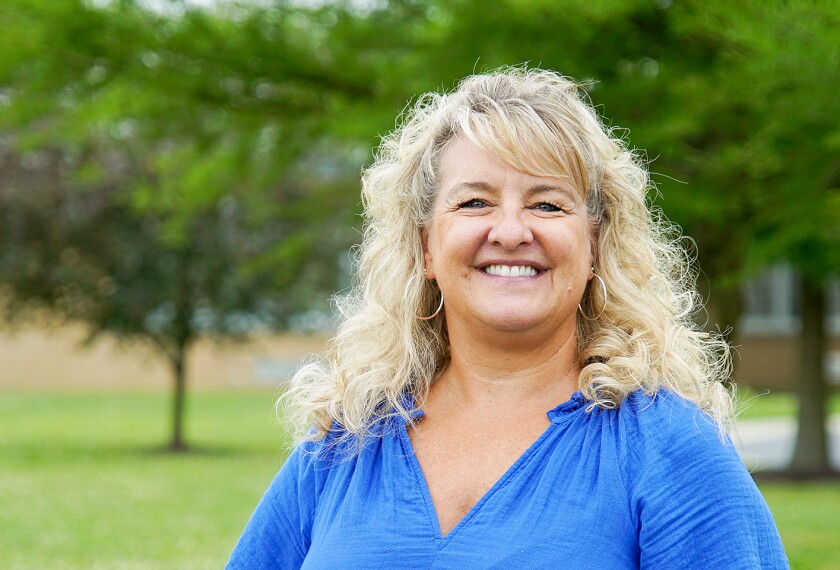School districts need to overhaul online credit-recovery programs to focus greater attention on content mastery versus seat time, incorporate more face-to-face teacher support, and build in better accountability measures to make sure students who earn course credits are showing learning gains, a new report concludes.
The report from the International Association for K-12 Online Learning, or iNACOL, urges schools and districts to re-evaluate their online credit-recovery offerings, which are typically used to help students pass a class previously failed. In recent years, critics have become concerned that some online credit-recovery options are just a way for districts to boost graduation rates, without improving student learning.
“Too many credit-recovery programs are out there just pushing students to the finish line on graduation with low rigor or just flexible pacing, but without the skills development,” said Susan D. Patrick, the association’s president and CEO. “We intentionally call that out as being not appropriate.”
Schools are often attracted to online credit recovery because it may cost less than more traditional options, and it can offer greater flexibility to students, allowing them to retake courses at a time and on a pace that works for them. The iNACOL report notes that 88 percent of school districts offered some form of credit recovery during the 2009-10 academic year, much of that in an online format.
Questions About Rigor
But the report finds that such programs need to evolve to be effective, and some credit-recovery programs have come under fire in the past few years for lacking rigor and providing low-quality options. New York City’s credit recovery offerings, for example, have been criticized as being used to inflate graduation rates without holding students accountable for learning.
David C. Bloomfield, a professor of education leadership at New York City’s Brooklyn College and the City University of New York Graduate Center, said both district leaders and vendors need to accept blame for poor credit-recovery offerings. Districts want programs with a record of success so their students regain credits, and to achieve those results, some vendors dumb down their offerings, he said.
“Districts are totally complicit in this,” he said. “It’s mutual back-scratching.”
Bloomfield said even successful programs are often just “teaching to the test,” with a “lack of proof that information is retained.”
Published data on whether or what kinds of credit-recovery courses are most effective are scarce.
However, Jessica Heppen, a managing researcher for the American Institutes for Research, has been studying students who are taking Algebra 1 credit-recovery courses in both online and face-to-face settings. According to her preliminary results, students retaking the course online reported it was more challenging than those working in a more traditional classroom found it to be. Slightly more students in the face-to-face setting actually recovered the algebra credit, and the online credit-recovery students had lower post-test algebra scores.
But whether students had online or face-to-face Algebra 1 credit recovery appeared to have no impact on their math achievement in future years.
“I’m definitely in favor of increasing innovative and high-quality models of credit recovery and testing them,” Heppen said. The iNACOL report highlights strategies the organization believes to be working. Adaptive offerings and competency-based programs of credit recovery, in which students advance on the basis of being able to show mastery of a topic, are beneficial, the reports says. Because those programs base completion on mastery rather than seat time, they allow for alternative methods of progression by students.
In some cases, students may skip parts of courses in which they’ve demonstrated understanding through assessments.
Other credit-recovery options include what the report calls “unit recovery,” which allows “students to retake just the units or competencies they need in order to advance.”
‘Units’ of Recovery
For example, at the Virtual Learning Academy Charter School in New Hampshire, which also serves as the state’s virtual school, 62 competency-based credit-recovery courses are offered. Students may retake an entire class, but they also may retake only the units or portions of the course that they didn’t master, said Steve Kossakoski, the school’s CEO.
Also, if students start failing portions of a class, they can take the credit-recovery units simultaneously, as they are taking the class, to prevent losing credit for the course.
“Our hope is that students do this within the context of the course to have the greatest meaning,” Kossakoski said. “A lot of schools send us kids in the summer [to recover credits] but that’s not as powerful, since the course ended three months ago.”
Face-to-face support can also play a key role in improving credit recovery programs, according to the iNACOL report, which offers examples.
At John Marshall High School in Chicago, the Pathway to Accelerated Student Success, or PASS, program pairs a student who has dropped out of school and re-enrolled, or one who is more than a year behind in graduation requirements, with a student advocate.
In the Colorado Youth for Change program, a nonprofit organization working with nine Denver-area school districts, online credit-recovery courses are done in computer labs of 25 students, supported by one or two teachers and volunteers.




